*****
THE POETS
Eugenio Montale • Leonardo Sinisgalli • Maurizio Cucchi • Luciano Erba • Fernanda Romagnoli • Erri de Luca • Giambattista Marino • Bernardo Bellincioni
Mario Petrucci: A Poem after Eugenio Montale
The Translators
Anthony Howell • Roy Marshall • Allen Prowle • Peter Robinson • Patrick Williamson • Timothy Adès
Previous Translations
THW2:June 1, 2016 THW1:March 1, 2016
*****
Eugenio Montale: Three Poems translated by Anthony Howell
DORA MARKUS
1
It was where one of those wooden bridges
At Porto Corsini rides the high tide;
Where those rare fishermen, more or less motionless,
Lower or bring up the net. With a gesture
Of your hand, you indicated some far,
Invisible shore – your heimat as it were.
Then we traced the canal back till
We got to the docks of the port, bright
With soot in their basin where, obstinately still,
The Spring would soon have sunk beyond recall.
And here, where an old way of life
Merges into a lovely kind
Of Oriental anxiety,
Your words grew iridescent
Like the scales of some stranded mullet.
Your disquiet, doesn’t it compare
To those migratory birds hurtling into lighthouses
During tempestuous twilights?
Even your charm is a whirlwind
Which cannot be observed:
Its bouts of repose get ever more rare.
I don’t know how, exhausted, you prevail
In that pond of indifference
Which is your heart. Maybe you’re
Saved by some amulet you store
Close to your lipstick, powder-plume and file:
A white mouse made of ivory –
And this way, you survive.
2
Now in your own Carinthia
Of flowering myrtle and ponds,
You might lean over the edge,
Keeping an eye out for carp
Timidly opening lips to the surface,
Or trace through the limes, between
Their ragged crowns, the kindling
At vespers, and, in the ripples below,
The glare from lakeside awnings and hotels.
The evening which extends
Over a damp depression brings no cease
To the palpitation here of motors
And the mournful honking of the geese,
While in the snow-white interior
Of some majolica house, as in a mirror
Darkly, I observe you altered now:
A tale of mistakes left as they are, engraved
Where the sponge cannot get to.
It’s your legend, Dora,
But this is already recorded
In the looks of those with the high
And haughtily effete sideburns
Who fill up ornate frames.
It comes back in each chord
Expressed by the fucked harmonica
As the hour darkens, getting ever later.
Written there. Though the evergreen bay
In the kitchen may indeed endure
And the voice may never change.
However, Ravenna’s a long way away.
Today, a ferocious faith distills its venom.
What does it want of you? Not to cede
The voice, the legend or the destiny!
And yet it’s late, and getting ever later.
Notes: This is a “bridge” in the sense of a ship’s bridge, a wooden platform for “Pesca con la Balancia” , which juts out over the Adriatic, enabling the Scales Fisherman to extend the mast that suspends his net further out over the sea at high tide. The net is raised and the bucket suspended above it is lowered, to scoop the catch.
A majolica house is an Austrian house, its face tiled with porcelain.
OFFERING YOU MY ARM
Offering you my arm, I must have sauntered down
xxxxxat least a million steps
And now your not being here is a void at each descent.
Our trek together turns out all too short for me.
My steps are still going on,
xxxxxnot that I need
The connections, reservations,
Traps or mishaps of those whose faith
Is placed in the reality of appearance.
I went down millions of steps,
xxxxxoffering an arm to you,
It wasn’t just that four eyes are better than two.
I descended with you because
xxxxxI knew that of the two of us
The truer sight, however poor, was yours.
THEY SAY
They say that mine
Is a poetry of unbelonging.
Yet, if yours, it’s owned
By one no longer form but essence.
Don’t they say that at its height
Poetry exalts the All that is in flight?
Still, they deny the tortoise
His win against the thunderbolt.
You alone perceived that motion
Hardly differs from stasis
And that the void has a plenitude:
An absolute that’s lessened by its clouds.
This may help me comprehend
Your journey’s end incarcerate
In plaster-casts and bandages,
Yet it brings no rest to know
That being one is the same as being two.
*****
Eugenio Montale: Two Poems translated by Roy Marshal
IN THE SMOKE
I’d often wait at the station, coughing
in the cold and fog, buy a paper
not worthy of the name, smoke cigarettes
that came in those bright packets
the fools have now banned.
If your train was cancelled or delayed
I’d watch carriages as they strobed past,
scan faces on the platform
until I saw yours, nearly always last.
It’s just one of the memories
that haunt me in dreams.
(From Satura, 1971)
I’VE FOUND
I’ve seen the pain of living
in a choked brook, parched veins
on a dry leaf, the grounded racehorse.
Salvation, I haven’t found, but glimpsed
through cracks in divine indifference:
in the statue’s somnolence at noon,
and in the cloud, and the high flying hawk.
(From Cuttlefish Bones, 1927)
*****
Eugenio Montale was born in Genoa in 1896 and died in Milan 1981. Widely considered the greatest Italian poet since Giacomo Leopardi and one of the most significant European poets of the Twentieth century, he was also a distinguished essayist, editor and translator. In 1975 he received the Nobel Prize in Literature.
*****
Leonardo Sinisgalli: Poem translated by Allen Prowle
EASTER 1952
The April evenings are cold and sad
in the large bedrooms in my house.
My father just moves between the fireside
and the lavatory. We have to lift him up, take off his clothes,
untie his shoes when he wants to sleep.
The sides of the Serino are still white with snow.
We are huddled in our rooms, the clock’s
chimes barely reach us from the square.
Our eyes are reddened by the smoke,
the unburnable wood still damp from the copse.
Christ will rise up from the sepulchre of irises:
messengers have announced it to us,
rapping on the shutters.
The little shepherds bring us the first
asparagus from the thorny fields, the barefoot
market girl has come with a basket of turnip tops.
I had been waiting for thirty years for an Easter
among the ditches, moss on the stones,
violets growing up between the tiles. But the dead
sleep in chestnut coffins,
on the rafters in the stables and the pigsties,
on the cross beams in the cellars and the chicken coops.
They find it hard to forsake once and for all
our chairs, our beds
where they lived so many years in the slow throes of dying.
More silent are the black
rags being worn along the street.
A group of men burn with an iron
the poisonous swelling in the donkey’s mouth.
I had set out towards an Easter
in blossom, to meet the purple Christ
who raises the lid off the white grain
that has sprouted in the crypts.
All that I know is powerless
to strike out all that I have seen.
The children blow on charcoal
so that from the lead might bloom
the image of the rose.
Visitors come and go to the house
to bring us old vine wood for the fire,
baskets of eggs, words of condolence.
In the rooms there is always the memory
of a recent mourning or of the groans
of someone old and sick.
My father’s blood is heavy.
He complains that he cannot move.
My nephews will lift him on their shoulders
and one day, one warm day yet to come,
will carry him to the vineyard. They will carry him
half way up the hill, on their chair
of linked arms.
It has touched us this valley, this valley
where we have chosen to return to die.
While Jesus will rise again so painfully
we hope against hope that we will live on
in the hearts of relatives and friends,
in the memory of neighbours in street and field.
How the swallows whistle
around the half-dark church of San Domenico
on the Thursday of darkness!
*****
Leonardo Sinisgalli (1908 – 1981) was born in Montemuro, Basilicata. After completing his engineering degree in 1932, he moved to Milan where he worked as an architect and graphic artist. His early collections focused on themes from ancestral southern Italian myths. Later he explored a more relaxed style in La vigna vecchia (1952), L’età della luna (1962) and Dimenticatoio (1978).
*****
Maurizio Cucchi: Poem translated by Peter Robinson
THE HOUSE BY THE SEA
I’m no longer in my house,
but in this airy spot which grants me all.
Its tranquil geometry
lets the brightness through for the bodies,
damp and light, on the terrace.
From here I catch the piazza’s voices,
I watch the sea open like a lake
in the wood and if there’s wind
a domestic landscape of cicadas
that protects our footsteps at midday.
Painted in blue and in white
the Brise Marine gathers people who don’t have
these gardens reflected in their eyes,
nor the festive traces of a lazy carelessness.
Distant I lean out to see
those fish-faces and the varnish,
violet and blue, that dribbles on the skin
of those not staying when the weather
no longer has direction:
in the whole plain, deserted,
and in the cut border misting over.
*****
Maurizio Cucchi was born in 1945 in Milan, where he studied at the Catholic University, and where he still lives. A prolific translator of French authors such as Stendhal, Flaubert, Balzac, and various Nineteenth Century French poets, he has also translated work by Poe, Lorca, Cavafy and many others. Alongside his volumes of poetry, he has also published novels and edited the Dizionario della poesia italiana.
*****
Luciano Erba: Poem translated by Peter Robinson
TOWARDS THE ‘IDEAL REPUBLIC’ (VICO)
When I would go to buy some mostarda
my mother would tell me: while you’re there
get him to give us ‘a bit of republic’,
meaning the leftovers whatever they were
remaining on the cured-meat seller’s stall.
I wonder did that Milanese expression
not reflect the disappointment of a people
nourished on so many ingenuous hopes
for the whole nineteenth century first and last
(stupide XIXième siècle! as someone said)
But today another century has gone
the cured-meat seller no longer gives leftovers
just as well
the ‘ideal republic’ is perhaps not so far away …
*****
Luciano Erba was born in Milan on 18 September 1922. One of his earliest influences was the poetry of Vittorio Sereni, who was his teacher for the first year of high school. Though he has lived most of his life in Milan, there have been extended periods spent abroad: in Switzerland during the latter part of World War Two, where he was interned, in post-war Paris, where he taught and first met the poet Philippe Jaccottet, and in the USA. He studied French, graduating from the Catholic University of Milan in 1947. He has published numerous collections of his poetry since his debut, Linea K, (1951).
*****
Fernanda Romagnoli: Poem translated by Peter Robinson
CONJUGAL
And face-to-face they watch this fringe
of evening on the apartment blocks waver,
colouring us with vermilion splashes –
balconies’ figureheads
side by side from conjugal vice:
what is it, valiantly,
resists in us – what is it, more real
than what we attempted
or together got wrong from the start,
rises from below and gropes in the mind
to certify it’s true, it exists,
it’s ours – as even a wicked son’s
ours – as life is even should it bleed
bending down like it does on this evening, this air?
*****
Fernanda Romagnoli was born in Rome in 1916, where she studied the piano. She published her first collection, Capriccio, in 1943, which was followed by her second, Berretto rosso, in 1965, by which time she had been involved in editing various literary reviews. For much of here life she was in poor health, having contracted hepatitis during the war years. Nevertheless, she pursued her literary career until her death in 1986 at the age of seventy.
*****
Erri de Luca: Poem translated by Patrick Williamson
Our sea which art not in heaven
and embrace the borders
of the island and the world
blessed be your salt
blessed be your seabed
welcome the crowded boats
without a route over your waves
the fishermen gone out at night
their nets amid your creatures
that come back in the morning
with their catch of castaways saved
Our sea which art not in heaven,
at dawn the colour of wheat
at sunset like ripening grape,
We have sown you with drowned bodies
more than in any time of tempest
you are more righteous than the land
even when you raise waves as walls
then flatten them as carpet
Keep the lives, the callers fallen
like leaves on the path
Be an autumn for them
a hug, a caress, a kiss on the brow
of mother and father before leaving
*****
Erri De Luca was born in Naples in 1950. Upon completing high school in 1968 he became an adherent of the radical movement, La Lotta Continua. After its disbandment, he ceased his political involvement. He has worked as a blue collar worker at the Fiat factory in Turin and at Catania airport. He has also been a truck driver and a mason. Self-taught in several languages including Ancient Hebrew, Swahili, Russian and Yiddish, he has translated books of the Old Testament and written commentaries on the Sacred Texts. He has published more than 60 books, numerous collections of short stories and poems, many of which have been translated in more than 30 languages.
*****
Giambattista Marino: Poem translated by Timothy Adès
‘BATTUS!’ ERGASTUS CRIED
‘Battus!’ Ergastus cried: ‘This is the hollow
where the fair Chloris chased the fleeing doe,
and fled her chasing swain: nor do I know
if she strove more to flee, or more to follow.
‘Look!’ he exclaimed. ‘You take such joy in hunting
the flitting hart: you shoot it as you please:
then shoot my heart! It bears its wounds in peace,
even pursues you, careless of the wounding.
‘You do not hear me out!’ Dry-lipped and shaking,
here he fell down, and lay, no longer speaking.
She, cruel, briefly turned on him her eyes.
Love with new searing flames set him alight.
A humour spills from two eyes burning bright:
a humour, which is fire, as none denies.
*****
Giambattista Marino, 1569-1625, was born and died at Naples, but lived for many years in Rome, Turin and Paris, where he was ‘le Chevalier Marin’. His baroque style was greatly admired and much imitated. His epic work Adone is the longest Italian poem.
*****
Bernardo Bellincioni: Poem translated by Timothy Adès
ON LEONARDO’S ‘LADY WITH AN ERMINE’
Who’s roused you, Nature, to a jealous fury?
Vinci portrays a star who lights your skies:
so great, so radiant Cecilia’s beauty,
the sun looks dark, against her lovely eyes.
His the portrayal, yours is all the glory:
we see sealed lips, imagine open ears.
Think that the more she lives and thrives in beauty,
your glory only grows, through endless years.
So thank great Ludovico fervently,
thank Leonardo for his skilful hand.
They choose to share her with posterity,
and show to many who will never see
her living, Art and Nature hand in hand:
to differentiate, and understand.
*****
Bernardo Bellincioni (1452–1492) began his career in the court of Lorenzo the Magnificent in Florence. In 1483 he moved to Mantua and in 1485 to Milan, where he was the court poet of Leonardo’s patron Lodovico Sforza, when Sforza’s son married Isabella, daughter of the King of Naples.
*****
Mario Petrucci: A Poem after Eugenio Montale
history
II.
moreover you fairly leap-
frogged turnstile death at that
whistle – no near-shot era-stealing
scene for you – no tender farewells
or the promising of legacies to long-
lost daughters kept well out of shot
: just that grip & stumble into the
wrong class – the celebrities
already on & taking tea – one
long clean fart of steam so no telling
platform from carriage now nor even a
near-set face of lover & worst : history
not this train at all but hobbling at a
run alongside thick & bleary with
spectacles half waving half
looking for someone
anyone to see off
I.
history is the train in a tree
of uninterrupted rings
or passed down on
marriage fingers of a dynasty
history cannot freight the here
& now – is gas on the brink
of going out
history is a printing press
taking instructions from
its own books
is one vast sack
detesting deflation as it
falls in love with the little – no
movement in it not diurnal
no energy not internal
cuts off its one arm
for its main course
neither refrains nor
promotes : history cannot do
nothing – has gone beyond
that history is the weal
not the lash with no-
end insight history is anything
if not everything seizing it
double-handed in its own river
god-like as a carp will not bring it
to table – if you throw history
up or back it changes
history
*****
Mario Petrucci is an award-winning poet and translator. His translations include Catullus and Sappho (both with Perdika Press) and Eugenio Montale’s remarkable Xenia sequence (Arc, 2016). Heavy Water: a poem for Chernobyl (Enitharmon, 2004) captured the Arvon Prize, while i tulips (Enitharmon, 2010) delivers “a truly ambitious landmark body of work” (PBS Bulletin). Shortlisted for the 2012 Ted Hughes Award, Petrucci has held pioneering poetry residencies at the Imperial War Museum and with BBC Radio 3. www.mariopetrucci.com
*****
The Translators
*****
Anthony Howell is a poet and novelist whose first collection of poems, Inside the Castle was brought out in 1969. His poems have appeared in The New Statesman, The Spectator and The Times Literary Supplement. A former dancer with the Royal Ballet, and now a respected teacher of the tango, he is currently curating The Room, a space for dance, poetry and visual art in Tottenham.
*****
Roy Marshall lives in Leicestershire where he works in adult education and writes poems, poetry reviews and the occasional story. His collection, The Sun Bathers (Shoestring, 2013), was short-listed for the Michael Murphy award.
*****
Allen Prowle was awarded the Times/Stephen Spender Prize 2007 for his translations of poems by Attilio Bertolucci. Previously, the Lincolnshire Association commissioned his translations of poems by Paul Verlaine to commemorate the centenary of the poet’s residence in Stickney in 1875. A collection of his own poems, Landmarks, appeared in 1977. Your Call Keeps Us Awake, Selected Poems of Rocco Scotellaro, translated by Caroline Maldonado and Allen Prowle, was published by Smokestack Books in 2013.
*****
Peter Robinson is the author of many books of poetry, translations, and literary criticism. He has also published a collection of short stories and his novel, September in the Rain, has just been published by Holland House Books. Awarded a Poetry Book Society Recommendation for The Great Friend and Other Translated Poems (Worple, 2002), he was winner of the John Florio Prize for The Greener Meadow: Selected Poems of Luciano Erba (Princeton, 2007).
*****
Patrick Williamson is an English poet who also works with music and filmpoems. He is the editor and translator of The Parley Tree, Poets from French-speaking Africa and the Arab World (Arc Publications, 2012). His most recent poetry collections are: Beneficato (English-Italian, Samuele Editore, 2015), Tiens ta langue/Hold your tongue(Harmattan, Paris 2014), Gifted (Corrupt Press, 2014), and Nel Santuario (Samuele Editore, 2013), which was highly commended by the judges of the XV Concorso Guido Gozzano, 2014.
*****
Timothy Adès is a rhyming translator-poet who works from various languages. From French he has published award-winning selections of the poetry of Victor Hugo, Jean Cassou and Robert Desnos. From Spanish, he has translated Alberto Arvelo and received an award for his translations of Alfonso Reyes. A substantial collection of the poetry of Robert Desnos will be forthcoming.
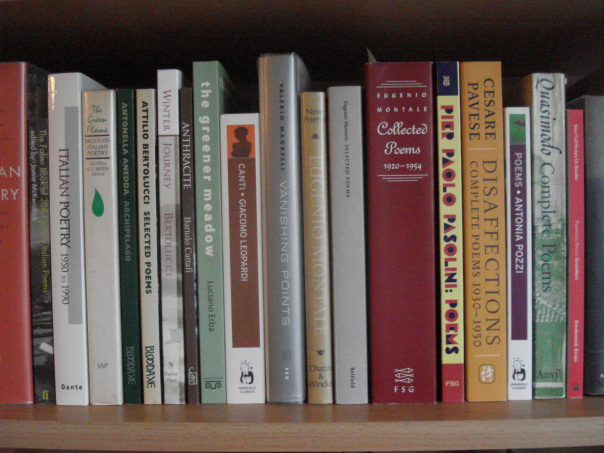
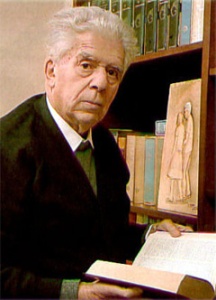
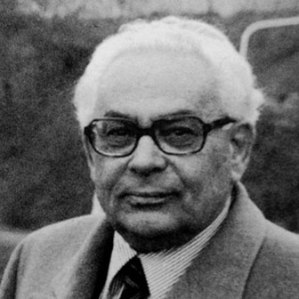
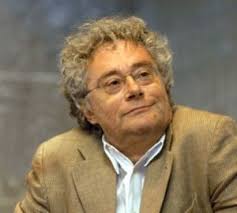
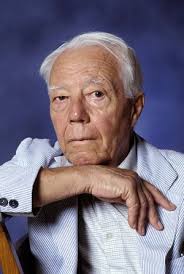

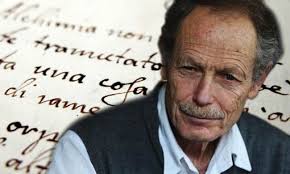
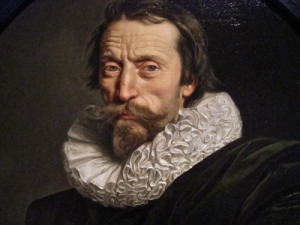
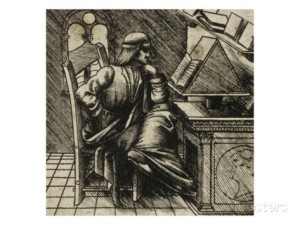
6 thoughts on “Italian Poetry 2”